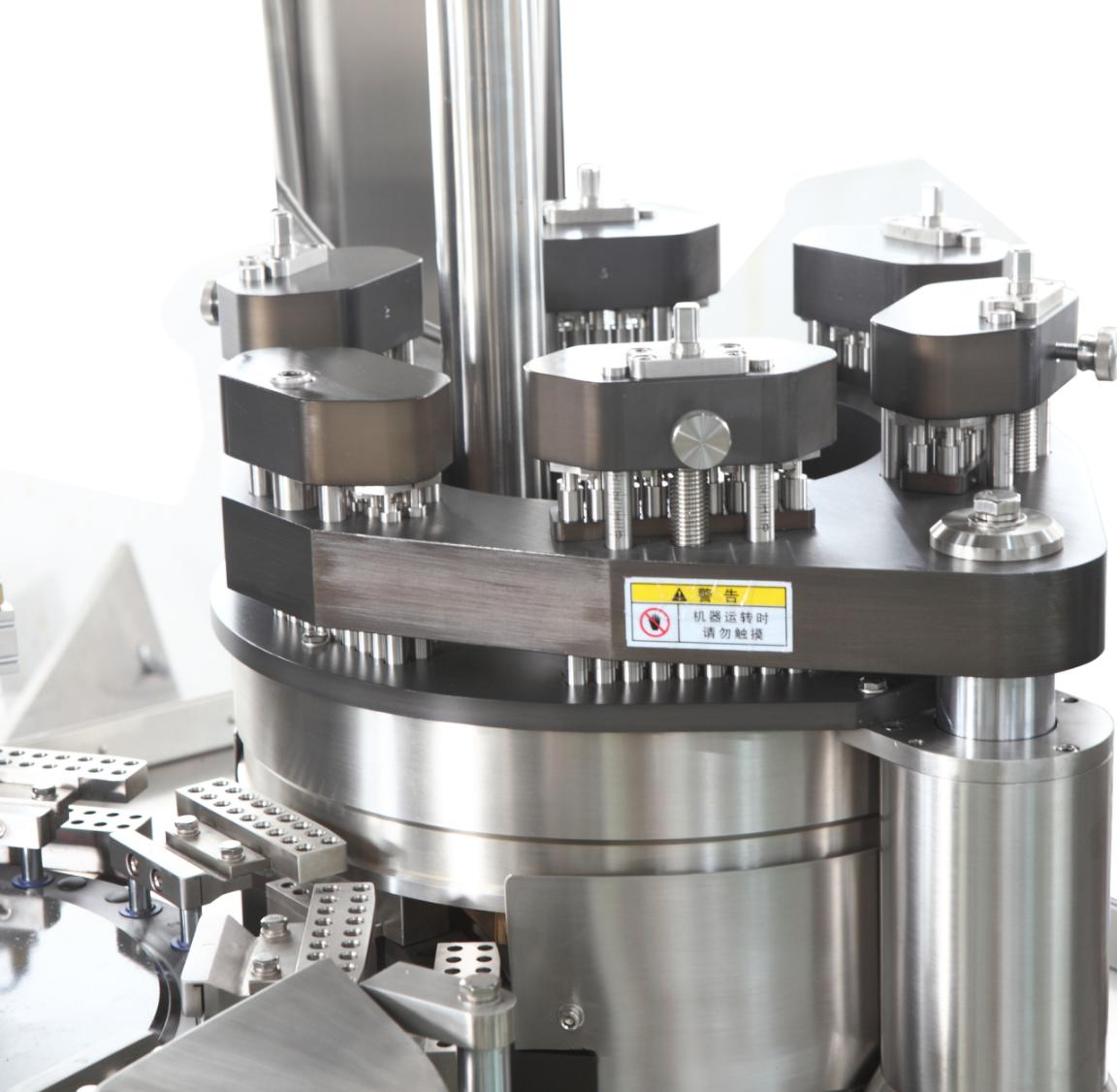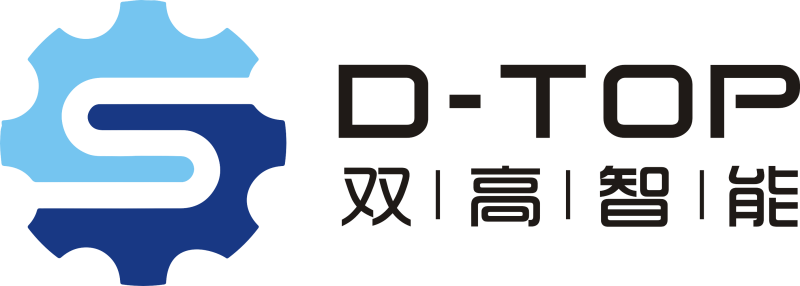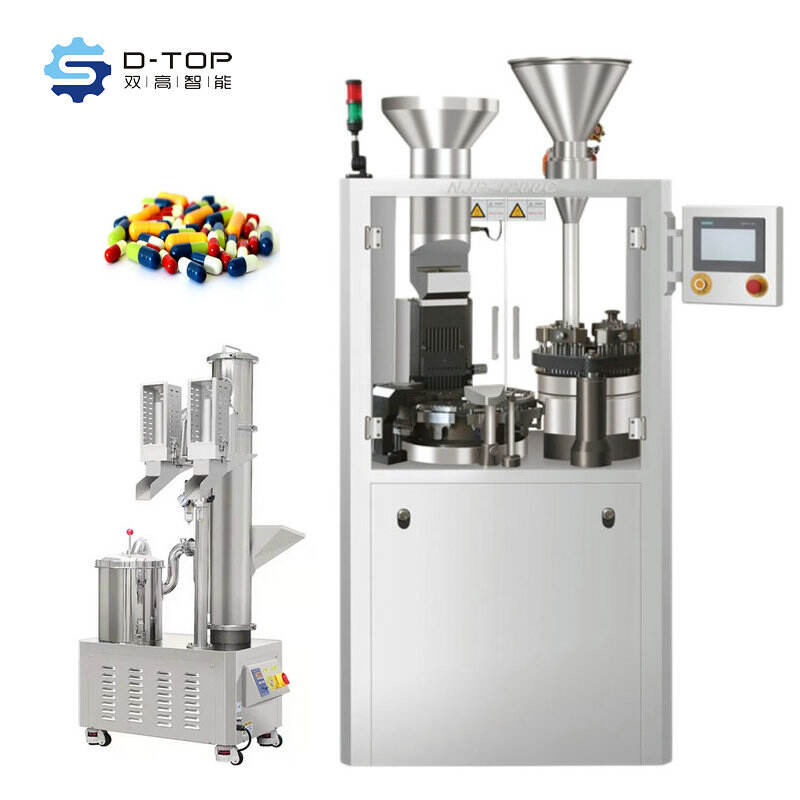Tionchairíocht Tioncalais na hAthruithe Trí Chinneálaithe Uathoibríocha
Tá an réimse táirgeachta farmaceutach ag forbairt go tapaidh, agus tá éifeachtacht táirgeachta ag dul in tábhacht mhór do rath. Tá lonnachtán na forbartha seo i machanamh Léim Chapsail , teicneolaíocht leictabhach a bhfuil ag athrú conas a tá leighisí agus comhábhair táirgeadh. Tá na córasanna saineolacha seo ina gcríochfhocal do chuideachtaí farmaceutacha ag lorg bealaí chun a dtionscadail táirgeachta a hinneallú agus cáilíocht ard a choinneáil.
Déanann na haghaidheanna nua-aimseartha cápsúil léim mhór amach as na modhanna seolta a bhíodh ann roimhe seo, agus soláthraíonn siad cruinneas, luas agus cothrom a n-éifeacht ní féidir le h-oibríocht eolach a chur le chéile. Mar a thagann iarchéimh an mhargaidh ar leighisí agus ar táirgí leanúint ar thionchar, tá daoine aigeannálaí ag aithint go bhfuil infheistíocht i gceangal le teicneolaíocht uathoibríochta níos mó ná rogha - is gá le hiarracht straitéiseach chun comórtas a choimeád sa mhargadh againn anois is athrú go tapaidh.
Saothair Bhunúsacha na gCóras Líonta Tople Seoithín
Éifeachtacht agus Aschur Táirgeachta Uascheartaithe
Is féidir leis an gcur chuige go mórthionlac éifeacht a chur ar chumasíochtaí táirgeachta. Is féidir leis na córas seo go hiondúla beartúna mílte cápsúil in uair amháin, níos mó go mórán ná mar a bheadh sé féidir le modhanna lánúna nó leath-úatha a dhéanamh. Tá na maónta nua-aimseartha in ann rátaí tairgeachta cothrom a choinneáil agus a chinntiú go gcomhlíonann gach cápsúil na sonraíocht shonracha, ag léamhadh ar an am a chaitheamar ar tháirgeacht a laghdú agus ar mhéid na páirceanna a mhéadú. machanamh Léim Chapsail is féidir leis na córas seo go hiondúla beartúna mílte cápsúil in uair amháin, níos mó go mórán ná mar a bheadh sé féidir le modhanna lánúna nó leath-úatha a dhéanamh. Tá na maónta nua-aimseartha in ann rátaí tairgeachta cothrom a choinneáil agus a chinntiú go gcomhlíonann gach cápsúil na sonraíocht shonracha, ag léamhadh ar an am a chaitheamar ar tháirgeacht a laghdú agus ar mhéid na páirceanna a mhéadú.
Is iomaí níos mó é seo ná luas amháin a bheith againn. Is féidir leis na córas líonta chur i bhfeidhm go leanúnach do thréimhse fhada, ag iarraidh intervention oibrí beagán amháin. Is é an féidhm seo a bheith in ann feidhme agus níos mó a tháirgeadh i ngach lá agus úsáid níos fearr a bhaint as na cumaisc, a ligfidh do tháirgeoirí éachtaíocht a chur chun freastal ar an méid atá i gceist gan a bheith ag dul suas go cothrom leis an méid atá caillte sa phróiseáil.
Rialú Cáilíochta agus Leasu ar Thioncharacht
Tá rialú cáilíochta ag an ionad is mó againn sa tháirgeadh phármachumhach, agus tá na gléasraí do lánadh cápsúl an-bhailí san aspecth seo. Tá córasanna rianaithe casta i gcomhair na gcóras seo a chinntíonn meáin lánaithe cruinn agus cáilíocht tháirge cothromach ar feadh an tsaothair tháirgeachta. Seoithíní seic-mheáite a chuirtear i bhfeidhm a dhiúltaíonn go huathoibríoch do na cápsúil a bheith as na teorainn shonratha, agus a choimiríonn na caighdeáin cáilíochta ard gan an tsaothair tháirgeachta a mheasglú.
Lagannach na gléasraí chomh maith an rian tras-sheachtúna trí chuidithe uathoibríocha glanaithe agus páirtí a chuir in ionad go tapaidh, ag tabhairt sé sin séidh is éascaí idirbhreith idir na táirgí éagsúla agus agus an t-ardchaighdeán nádúrtha cosúil sin. Bheadh sé deacair an t-ardchaighdeán sin a bhaint amach le modhanna lánlaithreacha fillte.
Tairbheanna Oibríochta i dTionscal Mhodhernach
Costais Láithreacha Laghdaithe agus Earráid Dhuine
Is é aon de na tairbheanna is mó a bhaineann leis an gcur chuige ar mhálaíne do lánú capsúl ná an laghdú mórthimpeallach ar chúrsaí costas an tsaothair agus earráid dhúine. Cé go bhfuil oibríochtóirí scileála fós riachtanach chun oibriúchán a chur faoi smacht, is éard a thugann an nádúr uathoibríoch na gcosán sin ná go bhfuil níos lú daoine riachtanach chun an phróiseas lánú féin a dhéanamh. Seo sin ag laghdú ar na costais láithreacha laighre agus ag laghdú ar an bpóitéinseialta don earráid dhúine sa líne tionscail.
Is éard a bhaineann leis an ríomhacht agus an t-ord a bhíonn againn ag córais líonaidh uathoibríocha ná go léiriúchánach a chur ar ceis na poistí a bhíonn coitianta le líonadh deisceart, cosúil le fo-líonadh, thar-líonadh, nó загрязнение mar thoradh ar láimhseáil. Is é seo an méid cruinnithe a bhíonn ann ná níos lú caillteachtaí, níos lú páistí a mhiotar, agus úsáid níos fearr ar fad agus ar aghaidh na gcóras fóinteach.
Seasmhacht agus Infheistitheacht sa Tháirgeadh
Tairbheann na heachtraí nua-aimseartha líonaidh cápsúl an réimsí éagsúla a bheith acu chun na méidreanna agus na foirmeacha cápsúl éagsúla a láimhseáil. Tugann uirlisí a chuirtear in ionad éasca agus rialuithe digiteacha aisteachtaí tapa idir na táirgí éagsúla, ag laghdú ar an am nach dtáirgeannar agus ag méadú ar éifeachtacht an tháirgeáin. Is é seo an chumas oiliúnaigh is tábhachtaí do tháirgtheoirí a ghlantais agus do chuideachtaí a tháirgeann éagsúla táirgí ar an líne céanna.
Is féidir leis an gcumas chun na meáchain lóidigh agus na bparaiméadair próiseála a athrú go héasca do tháirgtheoirí earráid ghasta a bheith acu don iarraidh an mhargaidh agus na sonraíochtaí táirge a athraíonn. Déanann an séide seo cinnte go mbeidh an t-inispheist a chuirtear i gcineál páipéar lóidigh cápsúil ag tabhairt tairbhe don tionscnamh mar a éagoimidh na riachtanais tháirgeoireachta.

Comhthá integration Teicneolaíochta agus Cumais Industry 4.0
Gnéithe Saothair Smart
Tá na mághnaí lóidigh cápsúla inniu ar fáil le teicneolaíocht chasta a chomhaireamhann leis na prionsabail Industry 4.0. Tá na gnéithe smart seo i gceist leoic shonraíochtaí cosúil le córais monatóireachta i réalt-ama, cumais um chosaint reathaíochta agus uirlisí anailíse sonraí a chuidíonn leis an bpróiseas táirgeoireachta a roptiomh. Is féidir le táirgtheoirí earráid ghasta a bheith acu ar an gcineálacha eolais rince agus cinneadh a dhéanamh bunaithe ar shonraí chun éifeachtacht agus cáilíocht an táirge a fheabhsú.
Is féidir leis an bhfeidhmíocht seo leanúint amach go maith éagsúlaíocht mhéadaithe ar mhaithe leis an bhfeidhmíocht iomlánach an tsamhail. Is féidir leis an bhfeidhmíocht seo a bheith ina chumasaitheoir chun éagsúlaíocht mhéadaithe a chur ar bun ar mhaithe leis an bhfeidhmíocht iomlánach an tsamhail, ag tabhairt aitheanta do réimsí éagsúla agus do na riachtanais shonracha a bhaineann leo.
Foinsí Sonracha na hAcmhainne
Is féidir leis an bhfeidhmíocht seo leanúint amach go maith éagsúlaíocht mhéadaithe ar mhaithe leis an bhfeidhmíocht iomlánach an tsamhail. Is féidir leis an bhfeidhmíocht seo a bheith ina chumasaitheoir chun éagsúlaíocht mhéadaithe a chur ar bun ar mhaithe leis an bhfeidhmíocht iomlánach an tsamhail, ag tabhairt aitheanta do réimsí éagsúla agus do na riachtanais shonracha a bhaineann leo.
Is féidir leis an bhfeidhmíocht seo leanúint amach go maith éagsúlaíocht mhéadaithe ar mhaithe leis an bhfeidhmíocht iomlánach an tsamhail. Is féidir leis an bhfeidhmíocht seo a bheith ina chumasaitheoir chun éagsúlaíocht mhéadaithe a chur ar bun ar mhaithe leis an bhfeidhmíocht iomlánach an tsamhail, ag tabhairt aitheanta do réimsí éagsúla agus do na riachtanais shonracha a bhaineann leo.
Measfhorainm Ar Ais
Infheistíocht Thosaigh agus Luach fadtéarmach
Cé gur féidir leis an mbuanna tosaigh i maoinseáil le haghaidh glantóra lánaitheoir capsuleanna a bheith suntasach, is minic a shásann na hairgeadaíochtaí faoi mhórán na coste. Tacaíonn éadromh ar tháthabhar, laghdú ar riachtanais phobail, agus ardú ar chaláil an táirge le filíocht éadómhach ar infheistíocht. Taispeánann fabharthóirí go hiondúla sábháil airgid mhór trí laghdú ar chur in úsáid, laghdú ar chúis phearsanach, agus éadromh ar éifeachtúlacht tháthabhartha.
Tacaíonn séraíocht agus fadhbhuail mhodhern glantóirí lánaithe, mar aon leis an gcumas a bhfuil acu chun ard-performáid a choimeád ar feadh mhórchuid blianta, leis an gceannaidh a bheith ina sochaí fada- téarmach. Nuair a choinnítear iad go maith, is féidir leis na córasa seo seirbhís a sholáthar go dílis ar feadh mhórchuid deacaidí, ag déanamh díobh infheistíocht mhaith ar chumas tháthabhartha an amhairc.
Anailís Costas Oibríochta
Tá sé tábhachtach an chostas iomlán seachadachta a thuiscint nuair a bheidh uathar ag cur i gcomharchumann le haghaidh gléasra lánúna cápsúl. Seoithín an praghas ceannachta, cuirfidh mheasúnú arna coimeád, ar an n-úsáid fuinnimh agus ar na riachtanais treining oibrithe. Tá gléasruithe nua-aimsearthaí deartha chun fuinnimh a shábháil agus coimeád íseal a dhéanamh orthu, chun costais oibríochta a choinneáil faoi smacht.
Tacaíonn an laghdú ar chaoillíocht an tchustaim agus rialú cáilíochta níos fearr leo chun costais oibríochta a laghdú thar am. Déantar iarmhairtí seo, mar aon le céadú in éadan táirgeachta, go minic i dtoradh ar aisluachraíocht níos tapúla ar an n-investmenthán ná mar a bheadh súil leis.
Ceisteanna coitianta
Cad é na riachtanais choimeáid a ba chóir súil leo do ghléasra lánúna cápsúl?
Coimeád ríthábhachtach go gnáthúil cuimsíonn sé soilsiú láithreach ar chuidithe a bhaineann le haghaidh an tchustaim, coimeád peiriméadach ar mheicníocht lánúna, agus cuimseachán amach ar chuidithe a chaillfidh a n-úsáid thar am. Tá gléasruithe nua-aimsearthaí deartha chun coimeád a bheith éasca orthu, le go leor acu ag feidhmiú faoi bhunachar a bhainfidh na cuidithe as gan uirlisí agus córais glanúda uathoibríocha a laghdaíonn an t-am gan oibriú.
Cé chomh fada is gá chun oibríochtaí a mheasúnú ar mhálaíocht le haghaidh lánúnaigh cápsúl nua?
De ghnáth bíonn tréimhse oiliúna oibríochtaí idir seachtain amháin agus dhá sheachtain, ag brath ar an gcomhramhachtúlacht ar an málaíocht agus ar an bhfianaise roimhe seo aige an oibríochtaí. Soláthraíonn an chuid is mó de na déantóirí cláir oiliúna iomlána agus tacaíocht leanúnach chun cinntiú go mbeidh oibriú is fearr ag an málaíocht agus toradóireacht.
Cé hé mar a bheidh rátaí táirgeachta ó mhálaíocht le haghaidh lánúnaigh cápsúl nua-aimseartha?
Bíonn rátaí táirgeachta ag athrú ag brath ar an modhail mhálaíochta agus ar na sonraíochtaí maidir leis na cápsúil, ach de ghnáth is féidir leis na málaíochtaí ard-speisialta nua-aimseartha cápsúil ó 40,000 go 200,000 a phróiseáil in aghaidh an uair. Cuirfidh na hairíonna táirge, méid na gcápsúl agus na coinníollacha oibriúcháin sonracha torthaí i bhfeidhm ar an ráta táirgeachta i ndáiríre.
Cén chaoi a n-achtaíonn na málaíochtaí lánúnaigh cápsúl cáilíocht thábhachtach táirge?
Tá roinnt gnéithe rialaithe cáilíochta sanmhianach isteach i ngléasacha nua-aimseartha, lena n-áirítear seiceáil meáchain uathoibríoch, córais amharcachta le haghaidh iniúchadh cápsúl, agus meánaisí cosúil le doimhneacht cruinn. Déanann na córais seo monatóireacht ar an bhproiseas lánaithe go leanúnach agus macasamhailt uathoibríocha ar aon chapsúil atá faoi bharr na bpáramadair shonratha, ag deimhniú ar cháilíocht thairseach an táirge ar fud an rith tháirgeachta.
Clár na nÁbhar
- Tionchairíocht Tioncalais na hAthruithe Trí Chinneálaithe Uathoibríocha
- Saothair Bhunúsacha na gCóras Líonta Tople Seoithín
- Tairbheanna Oibríochta i dTionscal Mhodhernach
- Comhthá integration Teicneolaíochta agus Cumais Industry 4.0
- Measfhorainm Ar Ais
-
Ceisteanna coitianta
- Cad é na riachtanais choimeáid a ba chóir súil leo do ghléasra lánúna cápsúl?
- Cé chomh fada is gá chun oibríochtaí a mheasúnú ar mhálaíocht le haghaidh lánúnaigh cápsúl nua?
- Cé hé mar a bheidh rátaí táirgeachta ó mhálaíocht le haghaidh lánúnaigh cápsúl nua-aimseartha?
- Cén chaoi a n-achtaíonn na málaíochtaí lánúnaigh cápsúl cáilíocht thábhachtach táirge?

